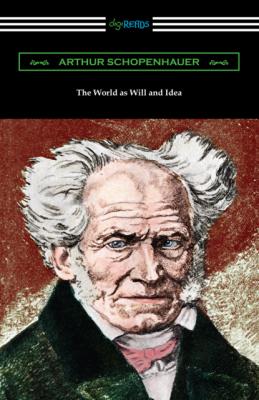The World as Will and Idea: Complete One Volume Edition. Arthur Schopenhauer
Читать онлайн.| Название | The World as Will and Idea: Complete One Volume Edition |
|---|---|
| Автор произведения | Arthur Schopenhauer |
| Жанр | Афоризмы и цитаты |
| Серия | |
| Издательство | Афоризмы и цитаты |
| Год выпуска | 0 |
| isbn | 9781420971989 |
So far as we have considered the question of the reality of the outer world, it arises from a confusion which amounts even to a misunderstanding of reason itself, and therefore thus far, the question could be answered only by explaining its meaning. After examination of the whole nature of the principle of sufficient reason, of the relation of subject and object, and the special conditions of sense perception, the question itself disappeared because it had no longer any meaning. There is, however, one other possible origin of this question, quite different from the purely speculative one which we have considered, a specially empirical origin, though the question is always raised from a speculative point of view, and in this form it has a much more comprehensible meaning than it had in the first. We have dreams; may not our whole life be a dream? or more exactly: is there a sure criterion of the distinction between dreams and reality? between phantasms and real objects? The assertion that what is dreamt is less vivid and distinct than what we actually perceive is not to the point, because no one has ever been able to make a fair comparison of the two; for we can only compare the recollection of a dream with the present reality. Kant answers the question thus: “The connection of ideas among themselves, according to the law of causality, constitutes the difference between real life and dreams.” But in dreams, as well as in real life, everything is connected individually at any rate, in accordance with the principle of sufficient reason in all its forms, and this connection is broken only between life and dreams, or between one dream and another. Kant’s answer therefore could only run thus:—the long dream (life) has throughout complete connection according to the principle of sufficient reason; it has not this connection, however, with short dreams, although each of these has in itself the same connection: the bridge is therefore broken between the former and the latter, and on this account we distinguish them.
But to institute an inquiry according to this criterion, as to whether something was dreamt or seen, would always be difficult and often impossible. For we are by no means in a position to trace link by link the causal connection between any experienced event and the present moment, but we do not on that account explain it as dreamt. Therefore in real life we do not commonly employ that method of distinguishing between dreams and reality. The only sure criterion by which to distinguish them is in fact the entirely empirical one of awaking, through which at any rate the causal connection between dreamed events and those of waking life, is distinctly and sensibly broken off. This is strongly supported by the remark of Hobbes in the second chapter of Leviathan, that we easily mistake dreams for reality if we have unintentionally fallen asleep without taking off our clothes, and much more so when it also happens that some undertaking or design fills all our thoughts, and occupies our dreams as well as our waking moments. We then observe the awaking just as little as the falling asleep, dream and reality run together and become confounded. In such a case there is nothing for it but the application of Kant’s criterion; but if, as often happens, we fail to establish by means of this criterion, either the existence of causal connection with the present, or the absence of such connection, then it must for ever remain uncertain whether an event was dreamt or really happened. Here, in fact, the intimate relationship between life and dreams is brought out very clearly, and we need not be ashamed to confess it, as it has been recognised and spoken of by many great men. The Vedas and Puranas have no better simile than a dream for the whole knowledge of the actual world, which they call the web of Mâyâ, and they use none more frequently. Plato often says that men live only in a dream; the philosopher alone strives to awake himself. Pindar says (ii. η. 135): σκιας οναρ ανθρωπος (umbræ somnium homo), and Sophocles:—
Ὀνω γυν ἡμας ουδεν οντας αλλο, πλην
Σιδωλ᾽ ὁσοιπερ ζωμεν, ὴ κουφην σκιαν.—Ajax, 125.
(Nos enim, quicunque vivimus, nihil aliud esse comperio quam simulacra et levem umbram.) Beside which most worthily stands Shakespeare:—
“We are such stuff
As dreams are made on, and our little life
Is rounded with a sleep.”—Tempest, Act iv. Sc. 1.
Lastly, Calderon was so deeply impressed with this view of life that he sought to embody it in a kind of metaphysical drama—“Life a Dream.”
After these numerous quotations from the poets, perhaps I also may be allowed to express myself by a metaphor. Life and dreams are leaves of the same book. The systematic reading of this book is real life, but when the reading hours (that is, the day) are over, we often continue idly to turn over the leaves, and read a page here and there without method or connection: often one we have read before, sometimes one that is new to us, but always in the same book. Such an isolated page is indeed out of connection with the systematic study of the book, but it does not seem so very different when we remember that the whole continuous perusal begins and ends just as abruptly, and may therefore be regarded as merely a larger single page.
Thus
